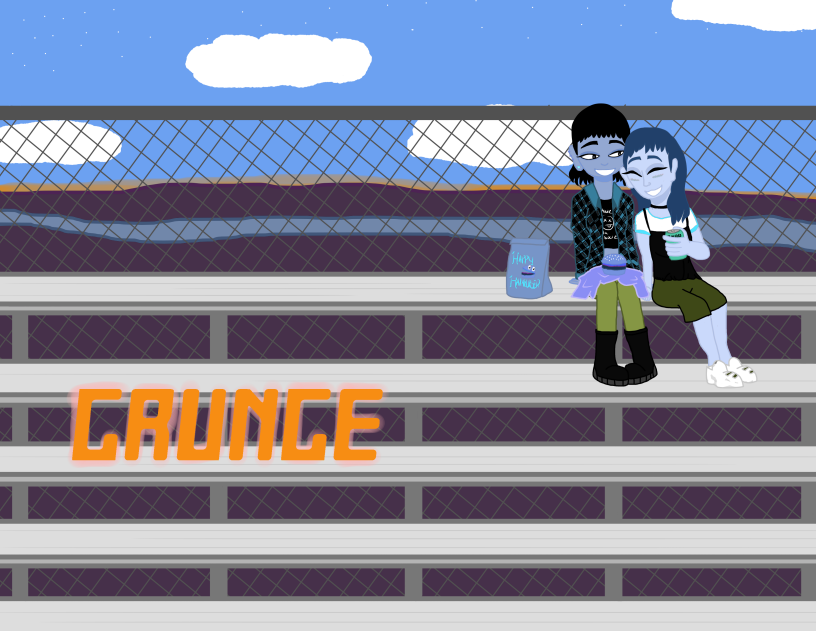Chloe Spencer

- Role: Gamedev and creator
- Company: CSpotRun
- Location: United States
A chat with @cspotrun_chloe.
QRM: Can you tell us a little bit about who you are and what you do in the games industry?
Chloe: I'm a hobbyist, and I'm currently working to release my first RPGMaker game, which is called Grunge. I've been working on it for the past two years, and I didn't have any prior game development or programming experience, so I've been teaching myself as I've gone along. I'm also a reporter and video lead for GameLuster, and my beat focuses on indie games.
QRM: What about the games industry excites and inspires you?
Chloe: No doubt, indie games are what excite me the most. I love seeing devs grow and put out incredible works of art. I enjoy watching devs take retro-aspects of game making or mechanics and find new ways to revitalize them; or seeing devs make new stories about their own experiences. One thing that I love about the games community is how a lot of professionals and hobbyists will network and support one another.
QRM: What about the games industry frustrates or disappoints you? What are the challenges you’re currently facing in the industry?
Chloe: The games industry is known for having tough working conditions and also for not being diverse enough. There are still a lot of cis white men who work in games, and as we've seen from reports on companies like Riot, the industry isn't welcoming towards women, people of color, and queer people. Another thing that frustrates me about the industry is the lack of opportunity for entry level positions, or for people to learn on the job. I would love to work full time in game development, but the issue that I encounter is that a lot of positions require 3-5 years of experience. There are just a lot of barriers to get involved in the industry, unless you want to be an indie dev and make your own project. But then there are financial barriers that come with being an indie dev-- it contributes to this cycle of exclusion.

QRM: If you could make one roadblock magically disappear from the games industry, what would you choose and why?
Chloe: This is such a hard question to answer, because I think of so many things that could make the industry better. But I would have to say that the most significant roadblock that I would like to eliminate is the number of jobs that require 3-5 years of experience, and instead to encourage the growth of well-paying entry level positions. I think that this could eliminate a lot of financial and societal barriers as to who gets to enter the industry professionally, and allow newcomers to gain experience and develop their skill set. Eliminating these barriers also means that we can welcome new types of ideas into gaming, and diversify the industry.
QRM: What message would you give to allies—both individuals and companies—who want to know how to support marginalised people better?
Chloe: For allies, I want you to understand that it's really important that you support indie creators, NOT corporations-- and that if you're going to support a corporation by purchasing something from them, that you understand where your money is going. A lot of corporations this past year held Pride festivities and rainbow products, but they actively contribute to anti-LGBT campaigns. Meanwhile, indie devs, comic artists, writers, are making INCREDIBLE pieces of art and they are struggling to make ends meet. I know that a lot of creators have Patreons, too, and will ask for as little as $1 a month. While you as a consumer/ally might not think that's a lot, it actually goes a long way-- especially when many people are willing to contribute. That money goes either to paying someone's bills, or investing in another game. Please don't underestimate the significance of your financial support, however little it is that you have to give.
QRM: What message would you give to marginalised people who are working in games or would like to work in games?
Chloe: Ask for help and support when you need it! There are a lot of game devs who enjoy forming those professional and personal connections and helping each other with projects.
QRM: If people want to find and support you and your work, how can they do that?
Chloe:
Patreon, Twitter, my portfolio site, or here where you can purchase Grunge!

